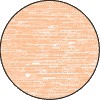Do You Believe Evil Can Exist Without Good
Or vice verse? I have heard the argument that you can't have good without evil many times. Do you believe this is true, both from a metaphysical and semantic point of view?
There is a duality to life.
but Good and/or Evil is subjective many times. All depends on which perspective it is being looked at.Evil can only exist within good but not as evil but good.
From evil comes good but the evil itself cannot be.
So no matter how you take it evil cannot be except it is good...
But if ever it does its only for a time and only you the person can make it so...
No one else is responsible.
- Emile Rposted 13 years ago
0
I think evil is observer dependent. I don't think anyone sets out to do evil in their mind. Their actions are judged as evil by others.
So, I guess it all depends on your perception of God. I think all life in this reality is connected to God and ultimately becomes one with God when it escapes this reality. So, if all is one and becomes one; what we perceive as good and evil in the physical world is only our skewed perception.
So, no. I guess I don't think evil can exist without good. Maybe that is the point of reality. To place us in this unique perspective of a physical form so our perception will be skewed. So we can see the things we won't be able to on the other side. To learn to want to do right before right and wrong, good and evil, merge back into one. I'm not exactly sure what this has to do with religion, considering "good" and "evil" are man-made social philosophical concepts.
Be that as it may, it's understood that the reality in which we live in is also duality, which would mean that you would be unable to have one without the other.To my mind, "evil" and "good" only have meaning in the context of human life (or sentient life in general). Without intelligent life forms, all we have is inanimate objects interacting with each other, or lower life forms acting on evolved instincts. Neither of which can be described as good or evil.
So if evil depends on intelligent life for its existence, then intelligent life must exist before evil can exist. And if intelligent life exists, then good can also exist. Both evil and good are ways to describe the actions of intelligent life forms, so it follows that, no, evil cannot exist without good, and vice versa. In order to have one, you must have the other.
I suppose it would be possible to have intelligent life without either good OR evil. But to have one, you must have the other logically. They come in a package.Can evil exist without good, or can good exist without evil?
Interesting question.
I've heard it argued both ways.
I guess maybe that depends on how you define good and evil.
Is evil the opposite of good, or the absence of good? etc.
Is good the oppostie of evil, or the absence of evil? etc.
I tend to lean more towards the opinion that, semantically, acknowledgement of one forces acknowledgement of the other, simply by the nature of the concepts of good and evil, themselves. It seems almost as if the concepts of good and evil are comparatory in and of themslseves. (By saying that a certain deed is "good," aren't we automatically assuming the presence of an opposite "evil" to which it can compare, simply the need to use the term? If there was no such thing as evil, then could we really call anything "good"? Would things be good, or would they just, be?) I therefore think the acknowledgement of the concept of either good or evil, automatically assumes the existence of a spectrum of value with good at one end and evil at the other.
It seems that if someone were try to define "goodness," it would be very hard to do so without referring to an opposite or by basing the definition on itself (e.g. "goodness" is "kindness" or "good intent" or "that which benefits," or something like that, in which in trying to define good, you keep referring to concepts which are already understood to have a "good" quality about them). This has at least been the case with my experience in discussing these concepts--whether or not someone has defined good in some other way, I am not sure.
I therefore lean more towards the idea of thinking that maybe once you acknowledge the existence of one, you are necessarily acknowledging the existence of the other by definition. In other words, maybe the terms good and evil are terms created out of the given understanding that there is an opposite which is possible--that the very nature of the words are that of comparison.
There are some, however, who believe that there is no such thing as good or evil. That there are no absolutes and therefore no actions are either good or evil.
Really good question. It's funny how something that seems so simple can really turn quite complex once you really think about it; and how things that I think I know are actually things that I don't really know so well at all.
What is your opinion on it, jtyler?
Related Discussions
- 23
How do you know the difference between good and evil?
by dmop 13 years ago
How do you know the difference between good and evil?
- 6
Atheist,What causes,or How do you Define Bad and Good Character?
by Apostle Jack 14 years ago
Atheist,What causes,or How do you Define Bad and Good Character?Do you think that its all the same or do you think it don't exist as you believe that good and evil don't exist?
- 15
Do Atheists Believe In Good And Evil?
by PhoenixV 9 years ago
Do Atheists Believe In Good And Evil?What is the basis.
- 7
What's the difference between the Tree of Knowledge of Good and Evil and the Tre
by Roger A Sanchez Jr 12 years ago
What's the difference between the Tree of Knowledge of Good and Evil and the Tree of Life?
- 29
Do you believe that the concepts of SIN and EVIL are a man-made religious concep
by Grace Marguerite Williams 10 years ago
Do you believe that the concepts of SIN and EVIL are a man-made religious concepts used asa guilt inducing means to control the masses and making them subservient to a religious authority? Or do you strongly believe that sin and evil exist in ACTUALITY and REALITY?
- 146
From Non-Life to Life... Fron Non-intelligence to intelligence
by Alexander A. Villarasa 11 years ago
The naturalist's perspective that life could come from non-life, and intelligent life from non-intelligent life is so simplistic as to defy logic and reason. The nature of life and intelliegnce is so complex for them to be expressed in such a seemingly simple concept called "evolution by...












